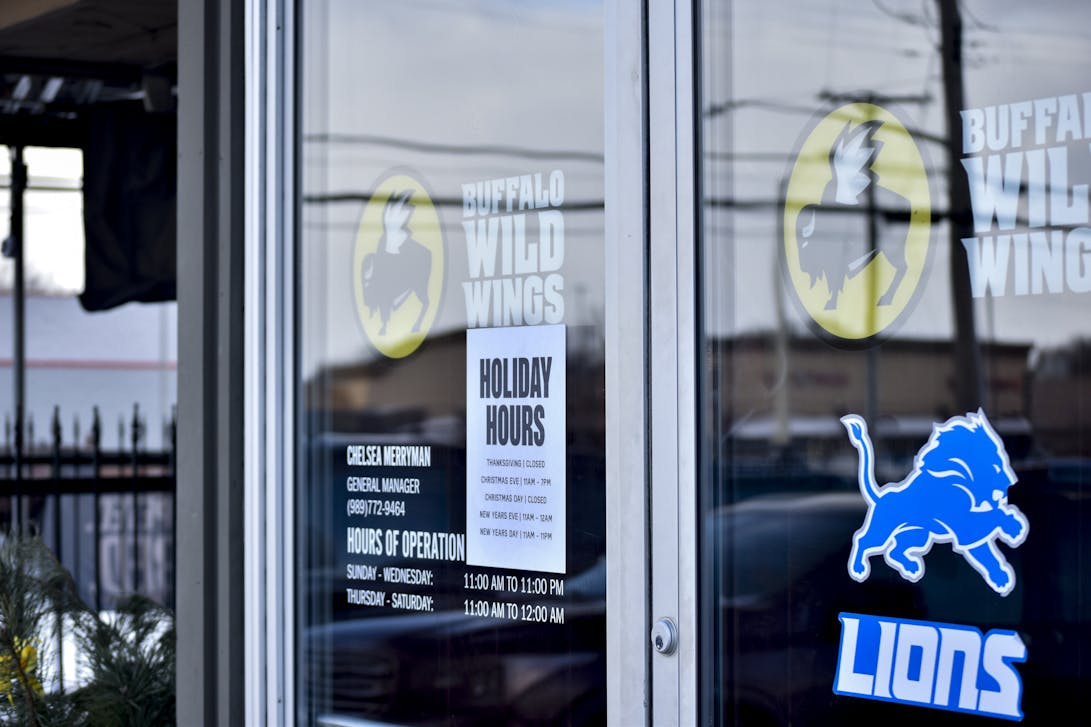Every Penny Counts
How will Michigan’s minimum wage increase affect the service industry?

The new year will bring many changes in the state of Michigan, including two minimum wage increases. While one would assume that pay raises will be a positive change, many members of the service industry are conflicted about their new hourly rate.
According to Michigan.gov, Michigan’s minimum wage is scheduled to increase twice in 2025. On Jan. 1, the minimum wage increased from $10.33 to $10.56 per hour, while the tipped employee hourly pay rate was raised from $3.93 to $4.01 per hour.
On Feb. 21, the minimum wage will rise to $12.48 and to $5.99 for tipped employees, respectively.
The minimum wage will continue to increase over the next three years, predicted to be $14.97 and $11.98 for tipped employees by 2028.
Beginning at that point in 2028, the state treasurer will annually increase the minimum wage, adjusted to the rate of inflation. Tip credit, which allows restaurant operators to pay their staff less than the minimum wage if their tips equate to or surpass a certain amount, will also be eliminated at that time.
These increases are being enacted in accordance with the Michigan Supreme Court’s amendment of 2018’s Improved Workforce Opportunity Wage Act (IWOWA) that occurred in July of 2024.

The IWOWA has been a topic of controversy since its initial conception in 2018, invoking the fear of economic ramifications in employees and restaurant operators alike. Mount Pleasant servers said that the increasing minimum wage will not equate to their current earnings if the tip credit is eliminated, which allows them to make far beyond any allotted hourly wage.
A 2022 survey from the Michigan Restaurant and Lodging Association reported that 91% of restaurant operators said they would increase menu prices if the tipped employee hourly pay rate were to reach $11.75, as was originally predicted for 2023. Another 58% of operators said they would be forced to lay off employees.
Organizations such as Save MI Tips, comprised of Michigan servers and bartenders, are actively protesting the IWOWA’s 2025 amendment. According to its website, Save MI Tips is opposed to the implementation of a higher minimum wage and the elimination of tip credit out of concern for the loss of service workers' income and jobs.
How will the minimum wage increase impact the service industry?
The opinions on the minimum wage increase from those in the service industry greatly vary, yet it seems that they all have one thing in common: They want to keep their tips.
A server at Mount Pleasant restaurant The Cabin, Hailey Sheldrake said she does not see a paycheck after taxes are accounted for, due to how low the minimum wage is. She said that she is excited at the prospect of finally earning a paycheck, yet does not believe that her new wages will be enough to live off of if her tips are affected.
“I think that (the Michigan Supreme Court) should all spend a day in the serving industry,” Sheldrake said. “I think it's really easy to come up with laws and rules if you don't really know firsthand what it's like.”
Taylor Lyttle, a server at The Twisted Fork in Mount Pleasant, said that though she currently earns more than the minimum wage, she is looking forward to the increase benefitting others in the service industry.
“I’m excited," Lyttle said. "Just as long as we can keep our tips.”
Though service industry workers such as Sheldrake and Lyttle are looking forward to the minimum wage increase -- with some reservations -- others doubt that the service industry will be able to adapt to the changes.

Jordan Lyder, a server at Buffalo Wild Wings, said that the minimum wage increase poses a real threat to the restaurant industry in particular.
“I think it’s going to screw up everything that we have going on right now,” Lyder said.
“People may not tip because they think they don’t have to because we’re getting paid $6 an hour, but that’s not the case,” Lyder said. “Right now, I don’t think I could make it on $6 an hour.”
How will the minimum wage increase impact CMU student employees?
Amy Thering, manager of Student Employment Services at Central Michigan University, said that the university will be increasing student wages in accordance with state law.
“It would affect every student employee that isn’t making that wage already,” Thering said. “The first increase is going up to $10.56, so any student employee who is not making at least $10.56 will automatically be bumped up to that amount.”
However, the second minimum wage increase may look different than other businesses and institutions. Thering said that CMU has reason to believe that there is currently legislation in the works that may change either the hourly rate or effective date of the minimum wage increase on campus.
“We’re asking departments to plan for that increase, knowing that something could change about it as well, so we’re keeping a very close eye on that second (minimum wage increase),” she said.



